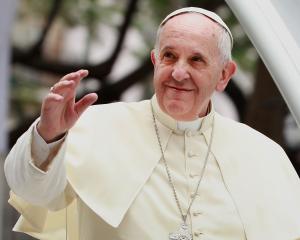
The victims of the Christchurch terror attacks will soon read their victim impact statements in the High Court at Christchurch. From today, dozens of worshippers, the wounded and the bereaved will relive their trauma to help the judge impose a sentence and ensure justice is done.
Officially, there are 300 direct victims in the March 2019 terrorist attacks on the Linwood and Al Noor mosques. Fifty-one people were murdered, and the gunman was charged with the attempted murder of 40 others. Another 209 people were at the mosques but were not shot.
It will be the first time many of the victims have spoken publicly about the attacks, and they will do so in a courtroom they will share with the murderer who stormed their place of worship, who may have tried to kill them, and who has admitted killing family and friends.
Over the past few weeks, many victims have told reporters what it will mean for them to confront the murderer ahead of his incarceration. All will detail their despair and some say they will make it clear to the killer that his twisted mission was nothing more than a murderous failure.
They will say they were not shaken from their faith, they were drawn closer to it. Communities were not divided, they were drawn together. People were not frightened into submission, they were empowered by support and compassion. Hate was not emboldened, it was attacked head-on.
The mosques are places of community worship and their communities are as diverse as those that support them. Many of the victims were first generation New Zealanders or foreign nationals, and many of those who will speak in court this week have arrived from overseas.
The murderer will be condemned by voices in many different languages, in proceedings in a court in a country that absolutely rejects the idea people should be hated for their religion. He will be condemned in a court whose sanctions will express the disgust of a nation.
He will also be condemned in an environment were are told will not give him free licence to spew his hateful rhetoric to a global audience. Justice Mander has already warned media he will bar the reporting of harmful material, and that he will not allow the process to be hijacked and used for ‘‘ulterior purposes’’.
The murderer is representing himself and has the right to make submissions as to sentencing. That he has chosen to speak for himself raises the very real prospect he will grasp at his one last chance to underscore his blackhearted views.
The court cannot deny him his right to speak, but it can ensure the court — and the world — hears only what is salient to the act of sentencing. There will be nothing good, or relevant, in allowing statements whose desired audience is not inside the courtroom.
In 2012, terrorist Anders Breivik was allowed to make a 45-minute-long statement during his trial for killing 77 people in Norway. That statement, replete with messages for the far Right, was illegally recorded and illegally published on the internet. The court will be alive to this.
The murderer has admitted his crimes but the circumstances in which they were carried out have been developed from a patchwork of statements and stories in the days since March 2019.
From today, the official version of what happened will be presented as a summary of facts whose detail will help the court decide how to sentence a terrorist.
It will be made up of detail gleaned from many sources, perhaps from what was learned from the terrorist himself.
But no matter the detail, the voices that matter most over the next few days are those of the victims. They are us but, no matter the support and the love, the full impact of what happened remains theirs.












